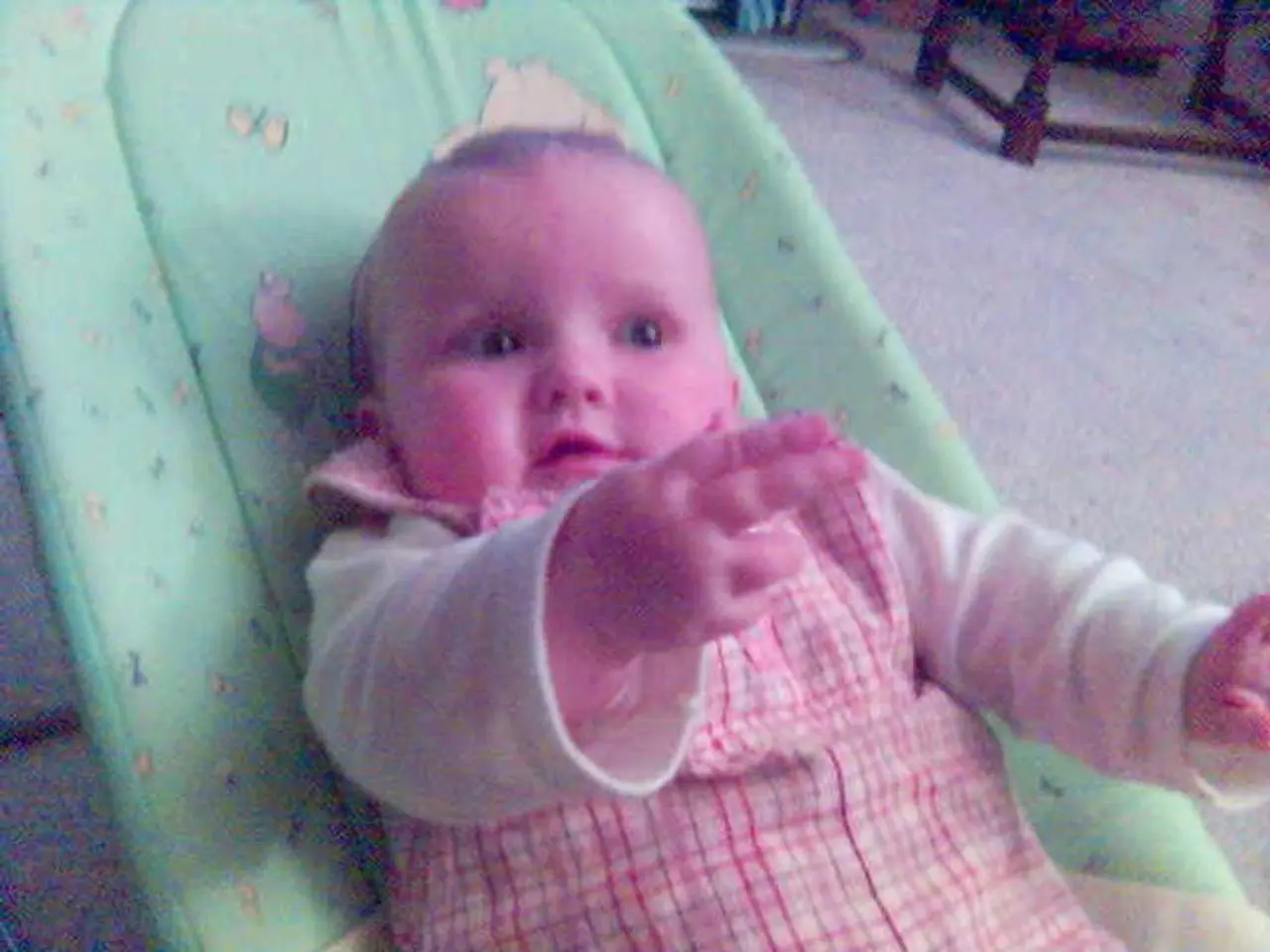Discussions among four children were taken place were interrupted by a phone call
Couple Embraces Foster Care Journey, Navigating Challenges Along the Way
For Luisa and Michael, the decision to become foster parents was driven by a deep sense of compassion and a desire to make a positive impact on a child's life. Inspired by a local family, they embarked on a journey that would bring new dynamics to their family and present them with emotional, relational, and systemic challenges.
The initial period was challenging for Luisa, but she grew accustomed to the new situation. The uncertainty about the foster children's stay in the family troubled her, but after six years, there are no return plans from the office. The couple's four children adapted, experiencing occasional jealousy, but they welcomed the new additions to the family with open arms.
The couple brought home an empty baby seat and later drove home with a foster child. The first foster child, a boy, was easier to deal with than expected, as he was a baby and hadn't packed much negativity. The second foster child, a one-and-a-half-year-old girl, integrated into the family with the help of the couple's own children.
Managing the child's contact with biological parents is a crucial aspect of foster care. In most cases, the goal is to reunify the child with their birth parents whenever safe and possible. This often means foster parents must navigate complex relationships that involve balancing roles, managing emotional challenges, and dealing with trust and communication issues.
Foster parents often rely on child welfare professionals to mediate contact with biological parents, advocate for the child's best interests, and support family reunification or alternative permanency plans. The child welfare culture is increasingly emphasizing "kin-first" philosophies, encouraging placements with relatives and more cooperative involvement of biological parent families when appropriate.
Luisa and Michael recognized that the foster children have two families and always emphasized to their children that they are loved by their biological parents. They initially had the reflex to distance themselves from the biological parents but tried to integrate them, finding comfort in their faith if the foster children were to leave their family.
The couple found a valuable support and role model in the foster mother in their area. They went through an application process, which included an information weekend and a home visit from the youth welfare office. The employees of the foster care service emphasized that love, empathy, and a warm home are essential for taking in a foster child.
Currently, there are 91 foster families or individuals in the district, but many are from the baby boomer generation and are leaving, while fewer new ones are coming in. According to Fabian Halbherr, head of the foster care service at the youth welfare office, it's becoming critical to find more foster families. Luisa and Michael are proof that with love, patience, and understanding, foster families can provide a nurturing environment for children in need, creating beautiful moments and memories that last a lifetime.
[1] Motivations for Foster Parenting: A Systematic Review. (2018). Children and Youth Services Review, 91, 159-173. [2] Kin-First: A New Philosophy for Child Welfare. (2018). Child Welfare, 94(1), 1-15. [3] Reunification and the Role of Foster Parents. (2020). Child Welfare League of America. [5] The Emotional Challenges of Foster Parenting. (2019). Foster Care for Kids.
- Luisa and Michael's interest in health-and-wellness extended to their decision to foster children, aiming to positively impact a child's life.
- The family dynamic shifted dramatically for Luisa and Michael, as they navigated health challenges, relationship issues, and family-dynamics changes after becoming foster parents.
- As they delve deeper into the foster care journey, Luisa and Michael turn to science and research for insights on dealing with the emotional, relational, and systemic challenges they face.
- Embracing the kin-first philosophy, Luisa and Michael strive to maintain a supportive relationship with the foster children's biological parents, aligning their lifestyle with the principles of home-and-garden and nurturing relationships.




